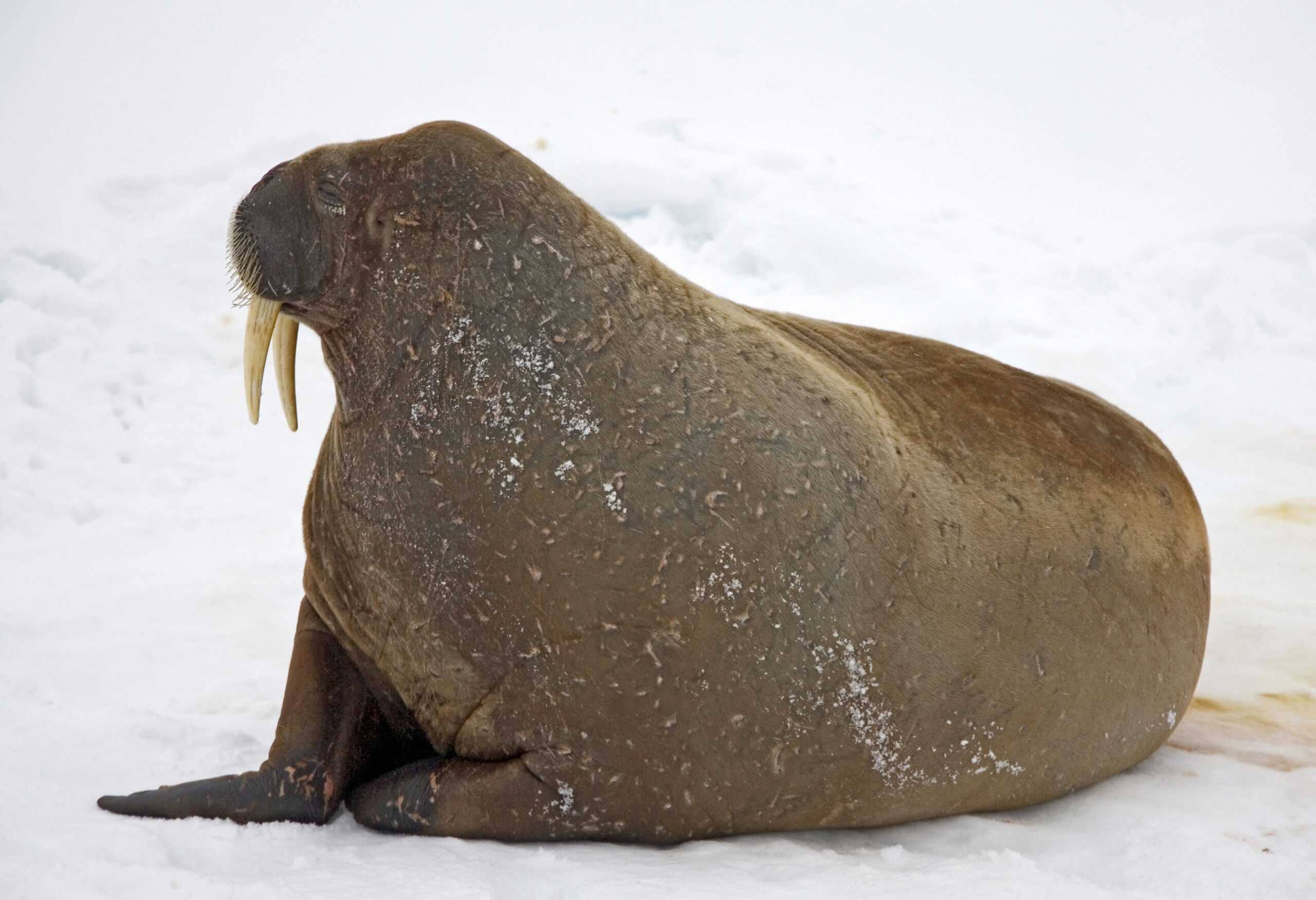Share this article
Wildlife Featured in this article
- Atlantic walrus
Warming ocean spells trouble for isolated walrus populations
Researchers found how past climate cycles have affected genetic diversity of marine mammals
Past ice ages and climate change cycles have caused the rapid genetic diversification of Atlantic walrus populations—diversification that may now be under threat due to human-caused climate change. Researchers found that Atlantic walruses (Odobenus rosmarus) were pushed south during ice ages, exploiting areas with ice floes and more open water. As the globe warmed, the large marine mammals returned northward to make use of open area, though some relic populations remained in the south. The authors of a study, published recently in the Proceedings of the Royal Society B, found that while northern walrus populations may experience increases in connectivity, southern populations may become increasingly isolated in small, unconnected pockets.
Header Image: Walrus populations became isolated in some areas due to past climate change. Credit: Mike Dunn, NC State Museum of Natural Sciences








